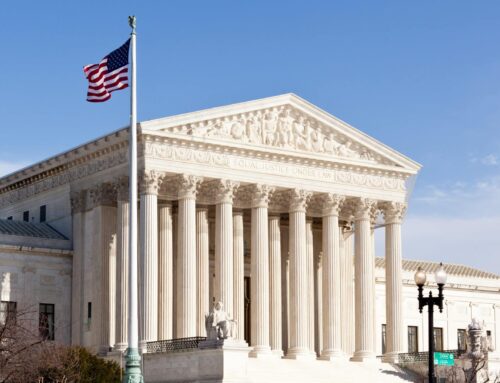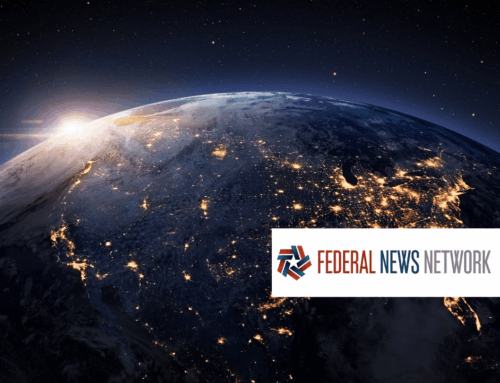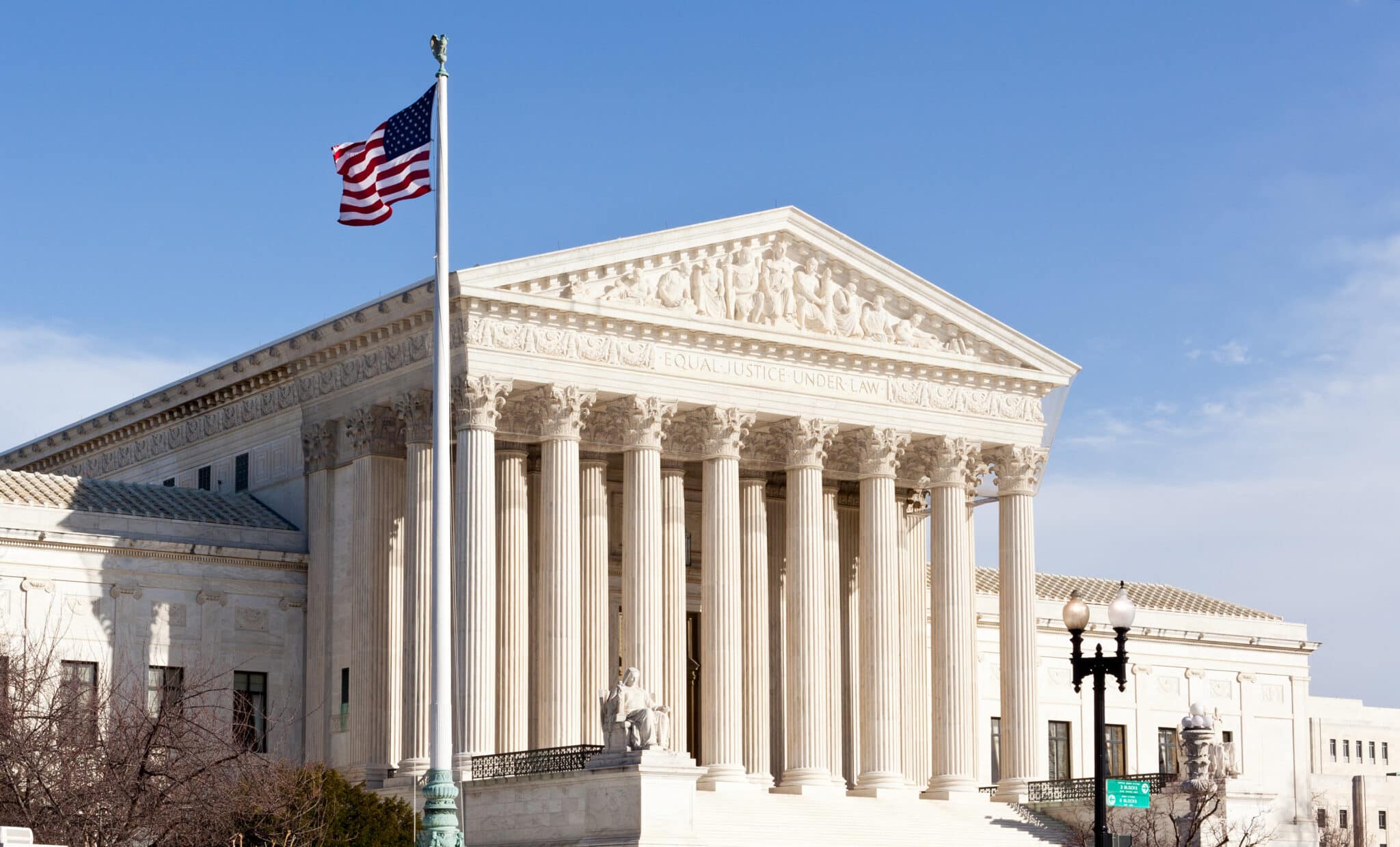Nearly half a billion dollars spent, families separated over the holidays, small businesses operating short-staffed, and violent crime was already declining. TCS Policy Analyst Gabe Murphy breaks down the mounting taxpayer costs of National Guard deployments to Los Angeles, DC, Chicago, Portland, and Memphis, explaining why these expensive missions are a solution in search of a problem. From the unprecedented legal battles over the Posse Comitatus Act to the economic ripple effects on Guard members’ civilian employers, this episode reveals what taxpayers are really paying for when federal troops patrol American cities. With deployments extended through at least February and no end in sight, the price keeps climbing while troops miss training, lose time with loved ones, and stand guard against an emergency that doesn’t exist.
Transcript
Announcer (00:02):
Welcome to Budget Watchdog All Federal, the podcast dedicated to making sense of the budget spending and tax issues facing the nation. Cut through the partisan rhetoric and talking points for the facts about what’s being talked about, bandied about and pushed to Washington, brought to you by Taxpayers for Common Sense. And now the host of Budget Watchdog AF TCS President Steve Ellis.
Steve Ellis (00:41):
Welcome to all American taxpayers seeking common sense. You’ve made it to the right place for 30 years. TCS that’s Taxpayers for Common Sense has surged as an independent nonpartisan budget watchdog group based in Washington DC/ We believe in fiscal policy for America that is based on facts. We believe in transparency and accountability because no matter where you are in the political spectrum, no one wants to see their tax dollars wasted. It’s Thanksgiving week 2025 and dear podcast listeners, nearly half a year after President Trump first deployed the National Guard to Los Angeles. The cost of these domestic military deployments are coming into focus and they’re piling up fast. We’re talking about roughly half a billion dollars with no end in sight. Here to break down what taxpayers are getting or not getting for this investment is TCS policy analysts Gabe Murphy, who’s been tracking these deployment costs and just published his latest analysis in the weekly wastebasket.
Gabe Murphy (01:33):
Hey Steve, glad to be here.
Steve Ellis (01:35):
Thanks for being here, Gabe. So let’s start with the basics. We’ve seen National Guard deployments in Los Angeles, DC, Chicago, Portland, Oregon, and Memphis. And the president has floated additional deployments in other cities like New York, Baltimore, San Francisco, and Oakland. These deployments are not free, and as I said, there are real taxpayer and economic costs associated with them. But before we get into that, what has the administration said about the need for these deployments?
Gabe Murphy (02:03):
Well, Steve, the specific justifications have varied a little bit depending on which deployments we’re talking about. LA was first. So on June 7th, the president federalized a third of California’s National Guard, some 4,000 troops, and deployed about half of them, 2000 to LA along with 700 Marines. He claimed that violence and disorder in response to immigration raids in LA required the deployment to protect immigration and customs enforcement, or ICE, personnel and federal property from protestors. The order specifically said to the extent that protests or acts of violence directly inhibit the execution of the laws, they constitute a form of rebellion against the authority of the government of the United States. So the administration was basically saying that some largely peaceful protests in LA were a rebellion. In DC the president issued an order declaring a crime emergency stating rising violence in the capitol. But the problem is violent crime in DC has been declining for multiple years now. We’ve seen the same thing in almost all of the cities targeted with these deployments claims of rising crime that just aren’t supported by the facts.
Steve Ellis (03:09):
Right, and partly because of that, a lot of these deployments have been challenged in the courts. Gabe, how are those challenges going?
Gabe Murphy (03:16):
Well, we’ve seen a lot of back and forth in the courts in terms of orders restricting deployments, but then those orders are often put on hold while appeals are ongoing. So by and large, the courts have allowed the deployments to continue while these court cases play out. In California, for instance, the governor and Attorney General challenged the deployment in court are that it violated the Post Se Act. That’s a nearly 150 year old law that bars federal troops from participating in domestic law enforcement. In September, a US district court judge agreed and ordered the administration to stop using these troops for things like arrests, searches, traffic and crowd control and interrogation. This was the first time a judge ever issued an injunction due to a violation of the Post Act.
Steve Ellis (04:02):
Right, which really underscores the unprecedented nature of these deployments.
Gabe Murphy (04:06):
Right, and not long after that ruling a different judge put a stay on the order, California has since asked a federal judge to lift the stay. So these court battles are ongoing in DC where the president is relying on different legal mechanisms than deployment. In California, a federal judge ruled last week that the deployment violates federal law. DC is a tricky case because the DC National Guard is already federal, but the judge still ruled that the president can’t deploy the National Guard to DC for non-military crime deterrent missions in the absence of a request from the city’s civil authorities. Despite that finding, the judge stayed the ruling for 21 days, so the administration would have an opportunity to appeal it. So a lot of these deployments, court battles are playing out over multiple months, and in the interim, their costs have been growing.
Steve Ellis (04:59):
So there are legal issues, but we’re a budget watchdog, not legal beagles. So let’s talk numbers. How do we know how much these deployments cost and how do we get to that half a billion dollar figure?
Gabe Murphy (05:10):
So in June, officials put out an initial estimate that the LA deployment would cost $134 million over 60 days, but the Pentagon has refused to provide updates on those costs since then. As far as the DC deployment, an initial estimate from the National Priorities Project put the cost of the deployment and the nation’s capital at around a million dollars a day for a while. We didn’t have much more than that to go on. I mean, one of the challenges in determining costs is that there are so many variables. There are the cost of lodging, food, and transport for troops, and of course the location of the deployments compared to where the National Guard troops are deployed from and the length of each deployment
Steve Ellis (05:52):
And the administration’s lack of transparency hasn’t made it any clearer?
Gabe Murphy (05:56):
No, it certainly hasn’t, but we have been getting more details. The Intercept did a story that ironically came out on November 11th Veteran’s Day. That was the first to identify a total of $473 million so far for all the deployments. According to that article, Senator Dick Durbin of Illinois shared data from the Senate Armed Services Committee on costs and found that the deployments are costing about $647 per soldier per day.
Steve Ellis (06:23):
That’s a pretty specific number, which gives the impression of accuracy. But given all those variables you just mentioned, it’s really just a ballpark estimate, right?
Gabe Murphy (06:31):
Yeah, I mean, it’s basically back of the napkin math. In addition to the average cost per soldier per day, the committee did put out some data on specific numbers for specific deployments. It put the total cost of the LA deployments at 170 million, at least as of mid-October. There are still some troops there, and so those costs are our continuing to grow. It also put the daily costs for the DC deployment at over 1.5 million, bringing the total price tag so far for that deployment to over 270 million and earlier this month, the president extended the DC deployment through at least February, and that’s a timeline that could bring the total cost of just the DC deployment to over $430 million.
Steve Ellis (07:14):
What about other cities?
Gabe Murphy (07:15):
Well, there have been deployments in the Chicago area that have cost an estimated $13 million. Portland, Oregon deployments have cost some 15 million, and deployments in Memphis, Tennessee have cost over 3 million. Again, this is all according to the Intercept based on Senate Armed Services Committee data that I don’t believe has been published. So while the Pentagon recently moved to withdraw some troops from Portland in the Chicago area, the hundreds are going to remain for an undefined period of time, US Northern Command posted on social media that the Pentagon plans to have a constant enduring and long-term presence in each city. That means those costs are going to keep growing.
Steve Ellis (07:53):
Well, we mentioned about some of the economic impact, Gabe, and what are some of these indirect costs? I mean, the deployments aren’t happening in a vacuum. National Guard troops aren’t like active duty soldiers. They usually have day jobs. So what do these indefinite deployments mean for those jobs and for the local economies where they would normally be working?
Gabe Murphy (08:11):
Well, Steve, I haven’t seen any National Guard working remotely from their posts in front of the metro stations and national monuments here in dc. So yeah, there are costs associated with pulling them from their day jobs. I mean, for one, the longer they’re deployed, the harder it is on their employers, some of whom depend on staying fully staffed, and there are laws protecting National Guard troops from being fired during deployments, which totally makes sense. But hiring temporary workers isn’t always possible, especially without knowing the timeline of these deployments. Businesses aren’t going to be reimbursed for any loss of productivity owing to them. So there are indirect economic impacts on businesses, which in turn can affect state and even federal revenue.
Steve Ellis (08:52):
Right. A friend of mine is a partner in a small law firm, and he was deployed to Afghanistan with the Virginia National Guard. It’s not like the firm could hire another partner or a temporary worker while he was gone. So there are real economic impacts from this ripple effect of having these National Guard troops deployed and deployed so long. But what about readiness? Let’s say the National Guard’s regular job. Are there any potential impacts there?
Gabe Murphy (09:20):
There are. I mean, the National Guard exists for a number of reasons, and fighting crime is not one of them. The guard are often called up for duty during natural disasters like hurricanes and wildfires. They can also be called up to fight in wars abroad, as you mentioned, and as they were in the Afghanistan and Iraq wars. And to stay prepared for these missions, they’re required to show up for training one weekend per month, and for a two week period once a year. These deployments have already delayed a lot of those trainings.
Steve Ellis (09:49):
Alright, Gabe, can you bottom line this for our Budget Watchdog Faithful?
Gabe Murphy (09:54):
Yeah. Bottom line. These deployments are costly and unnecessary. There is no national crime emergency that warrants them. And even if crime was broadly on the rise, which it’s not, given the high costs and legal constraints involved in National Guard deployments, investments in local law enforcement and community safety programs would be far more cost effective way of addressing it. Instead, taxpayers are spending hundreds of millions of dollars and counting on these deployments. Businesses are operating short staffed. National Guard troops are going to spend the holidays standing around in the cold instead of spending their time with their families
Steve Ellis (10:30):
And it’s expensive. Gabe Murphy, thank you as always for bringing the very latest on budget Watchdog.
Gabe Murphy (10:37):
Thanks for having me, Steve.
Steve Ellis (10:38):
Well, there you have a podcast listeners, nearly a half a billion dollars spent on National Guard deployments to address crime in cities where violent crime was already declining. It’s a solution in search of a problem, and it’s costing taxpayers dearly while pulling members of the National Guard away from the real jobs, their families, and their actual mission of responding to genuine emergencies. This is the frequency market on your dial, subscribe and share and know this taxpayers for common sense has your back America. We read the bills, monitor the earmarks, and highlight those wasteful programs that poorly spend our money and shift long-term risk to taxpayers. We’ll be back with a new episode soon. I hope you’ll meet us right here to learn more.









